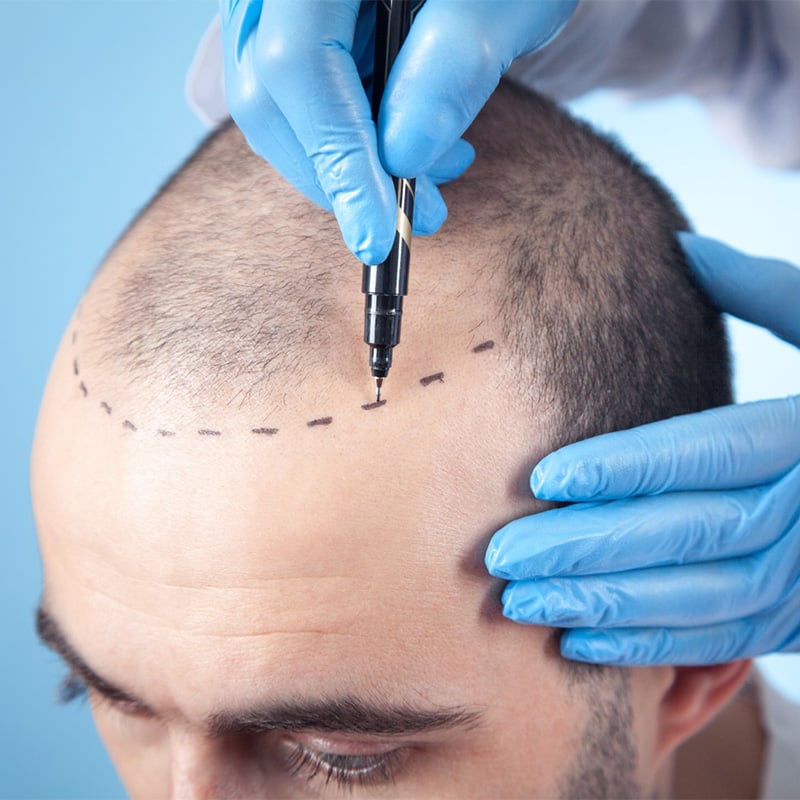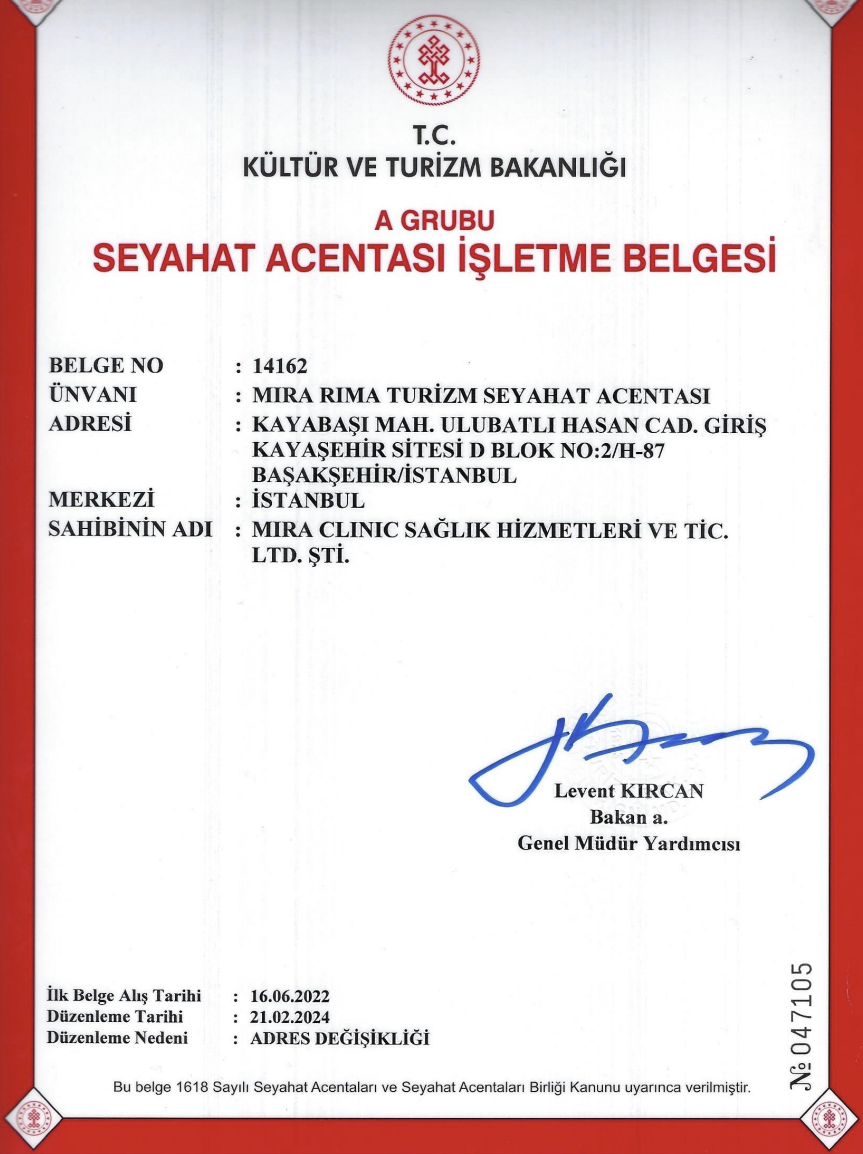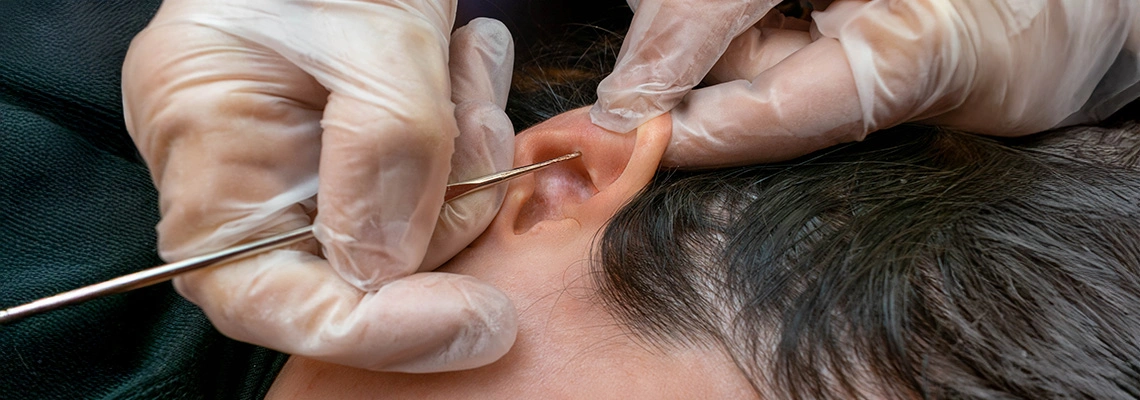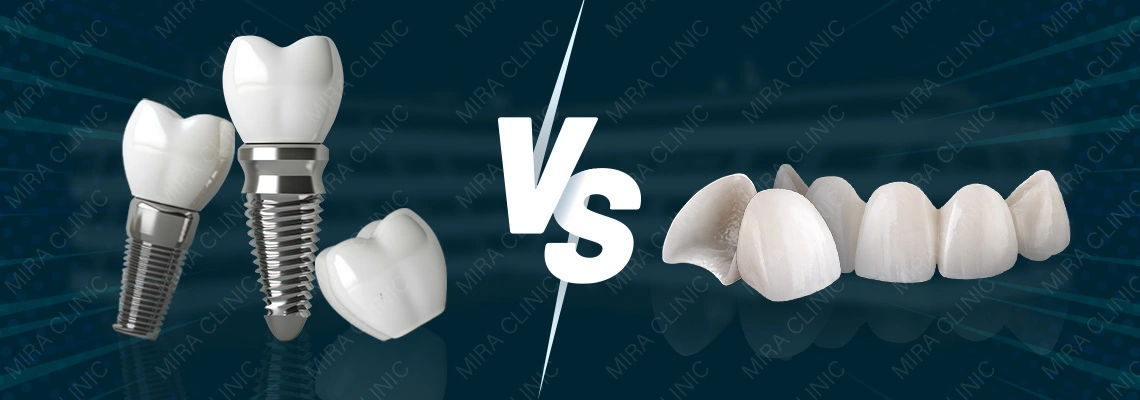What is the Hair Transplant Success Rate? A hair transplant is a surgical procedure that moves hair follicles from one part of the scalp to another, usually to cover bald or thinning areas. It can be a solution for people who suffer from permanent hair loss due to various reasons. But how successful is hair transplant and what factors affect its outcome? Well, read on.
Table of contents:
Hair transplant success rate for men
about 80% of all transplanted hair starts to grow back in three to four months after the surgery. However, this rate may vary depending on the type of hair transplant technique used, the skill and experience of the surgeon, the quality and quantity of the donor's hair, and the post-operative care. There are two main types of hair transplant techniques: DHI and FUE.
DHI stands for direct hair implantation, which involves extracting individual hair follicles from the donor area and implanting them directly into the recipient area using a special device called an implanter pen. This technique does not require making incisions or creating holes in the scalp, which reduces scarring and healing time. The DHI hair transplant success rate is around 90%, as it allows for more precise and natural placement of grafts.
FUE stands for follicular unit extraction, which involves extracting individual hair follicles from the donor area using a small circular punch and implanting them into tiny slits or holes made in the recipient area. This technique also minimizes scarring and healing time, but it may cause more damage to the grafts during extraction and implantation. The FUE hair transplant success rate is estimated to be around 85%, as it depends on the skill and experience of the surgeon.
Related articles:
Hair transplant success rate for women
Some women with hair loss may consider hair transplant, which can be caused by hormones, thyroid, alopecia areata, or injuries. However, not all women can have a hair transplant, as they often lose hair all over the scalp. Only about 2% to 5% of women with hair loss can benefit from this procedure. Hair transplant for women has a similar success rate as for men, but it depends on many factors, such as the hair loss type, the donor hair quality and amount, and the patient expectations. Women who have specific areas of hair loss, like receding temples or bald spots, may have better results than women who have thinning hair everywhere. Women who have thick and healthy hair on the back and sides of their heads may have better results than women who have fine and weak hair. Women who have realistic expectations and understand the procedure limits may have better results than women who expect a big change in their look.

Signs of failed hair transplant
Hair transplant is generally considered a safe and effective procedure, but it is not without risks and complications. Some of the possible signs of a failed hair transplant are:
-
Infection: This can occur if the surgical site is not properly cleaned or if the patient does not follow the post-operative instructions. Infection can cause inflammation, pain, pus, fever, and poor healing.
-
Bleeding: This can occur if the blood vessels are damaged during the surgery or if the patient has a bleeding disorder or takes blood-thinning medications. Bleeding can cause swelling, bruising, hematoma, and scarring.
-
Scarring: This can occur if the incisions or holes are too large or too deep, or if the patient has a tendency to form keloids or hypertrophic scars. Scarring can affect the appearance and growth of the transplanted hair.
-
Patchy hair growth: This can occur if some of the grafts do not survive or grow properly, or if they are placed too far apart or too close together. Patchy hair growth can affect the density and naturalness of the transplanted hair.
-
Grafts that fail to take: This can occur if some of the grafts are damaged during extraction or implantation, or if they are rejected by the immune system. Grafts that fail to take can cause poor growth or no growth at all.
How long do hair transplants last?
The longevity of hair transplants depends on several factors, such as:
-
The type and extent of hair loss: Hair transplants do not stop or reverse hair loss; they only redistribute existing hair from one area to another. Therefore, if the patient continues to lose hair in other areas of the scalp, they may need additional procedures in the future to maintain their results.
-
The quality and quantity of donor hair: Hair transplants use donor hair, usually from the back and sides of the scalp. If the patient has little or low-quality donor hair, they may not get or keep their desired results.
-
The age and health of the patient: Hair transplants work better and longer for younger and healthier patients, who have more active hair follicles and better blood flow. Older and less healthy patients may have less successful hair follicles and healing, which can affect the result and duration of the procedure.
-
The skill and experience of the surgeon: Hair transplants need a lot of skill and experience from the surgeon, who has to handle the hair follicles carefully and precisely. A good surgeon can do the procedure with less damage, better placement, and natural results. A bad surgeon may cause more problems, poor growth, and unnatural results.
Hair transplant success rate in Turkey
Turkey attracts many people who want hair transplants, as it has low prices and high-quality services. The success rate of hair transplants in Turkey is about 95%, which is similar to other countries. However, this rate can change depending on the clinic, the surgeon, and the patient. To get a good hair transplant in Turkey, it is essential to pick a reliable and certified clinic that meets international standards of safety and quality. It is also essential to pick a skilled and experienced surgeon who has done many hair transplants with different methods and has a portfolio of happy patients. It is also essential to follow the instructions before and after the surgery given by the clinic and the surgeon, as they can affect the healing and growth of the transplanted hair.
One of the best clinics for hair transplants in Turkey is Mira Clinic in Istanbul, which has a team of professional and friendly staff, modern equipment, and excellent results.

Sources:
- Hair Transplant: What To Expect
- https://www.webmd.com/skin-problems-and-treatments/hair-loss/hair-transplants
- Hair Transplantation and Restoration Surgical Hair Replacement
- https://www.plasticsurgery.org/cosmetic-procedures/hair-transplantation-and-restoration
- Women's Hair Loss and Hair Restoration
- https://www.webmd.com/skin-problems-and-treatments/hair-loss/women-hair-restoration
- Everything You Need to Know About Hair Transplants
- https://www.healthline.com/health/does-hair-transplant-work
















